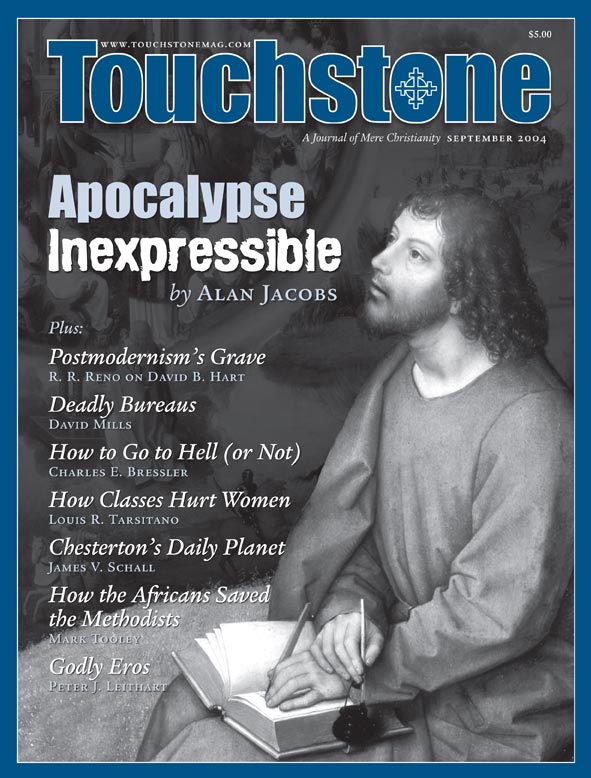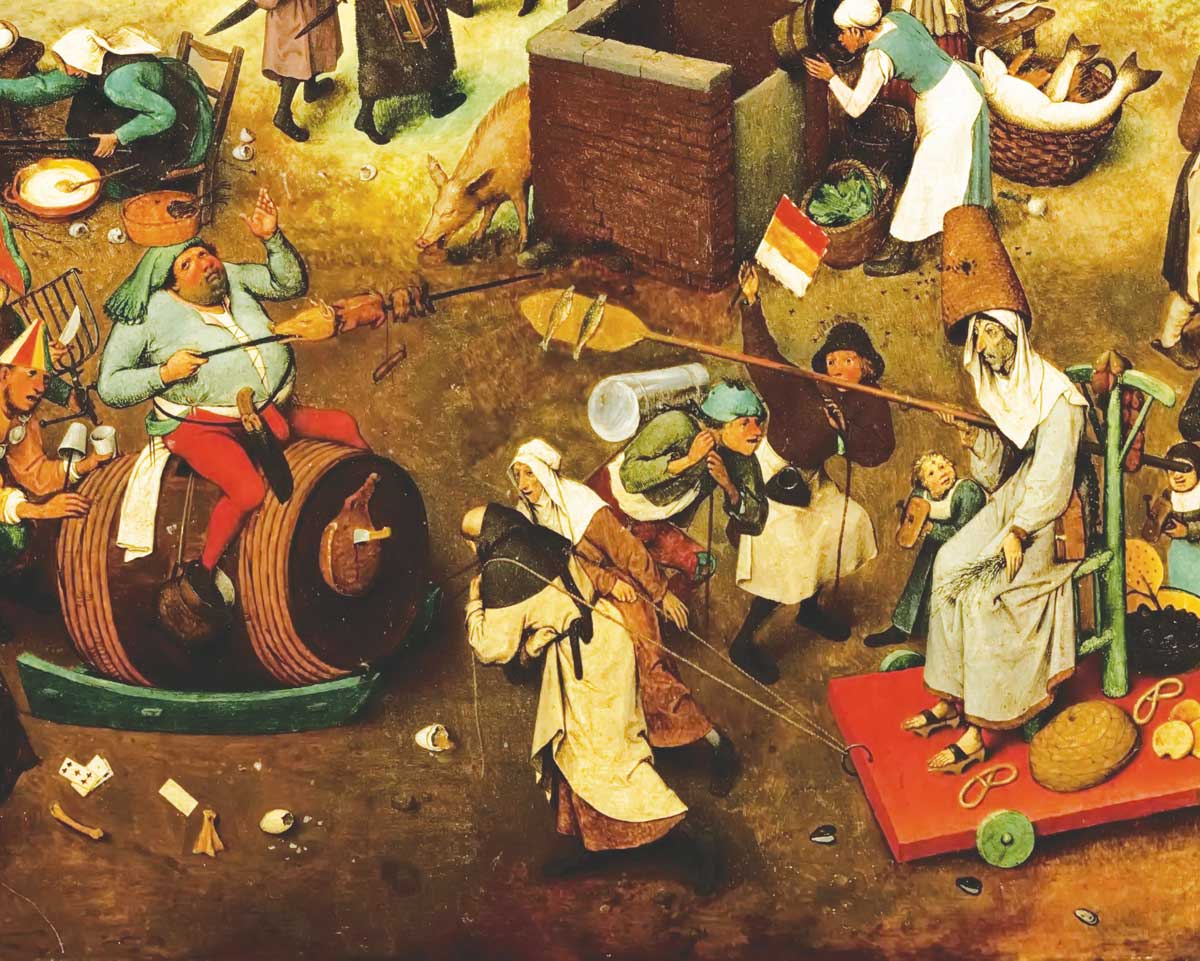Return to Beauty
The Beauty of the Infinite: the Aesthetics of Christian Truth
by David Bentley Hart
Eerdmans, 2003
(460 pages; $55.00, hardcover)
reviewed by R. R. Reno
Some decades ago the novelist Malcolm Cowley observed that literary culture tends to shift and change in thirty-year, generational stages, an insight that surely applies beyond the realm of literature. One need not be a brilliant social critic to observe that the last three decades have been relentlessly and homogeneously “post-sixties.”
Gore Vidal still writes diatribes. David Horowitz still inveighs against tenured radicals. Undergraduates still read Jacques Derrida and Michel Foucault. Book catalogues burst with new titles, but the assumptions, themes, and rhetoric are anything but new. By a thirty-year reckoning, American intellectual life is creakingly old—perhaps even dead and worm-ridden.
It is with this sense of generational superannuation that one should approach David Hart’s remarkable book, The Beauty of the Infinite. Hart’s command of postmodern literary and philosophical discourse, the idiom with which the sixties generation of scholars and intellectuals have clothed themselves in recent decades, is complete. Any young student who is about to begin doctoral studies in comparative literature or gender studies or some other fashionable topic will immediately recognize in Hart an intellect quite capable of the gymnastics of “difference,” the high mysteries of “alterity,” the incantations of “otherness.”
But more importantly, that young student will find in the Orthodox Hart the voice of one summing up the efforts of the post-sixties generation and passing judgment. The verdict is clear and forceful: The world of contemporary “humanistic” study is not humane at all. The languid, ironical intellectual class that came of age in the 1960s is like a flock of vultures circling around a nihilistic, violent, ugly, anti-human conclusion.
The generations are changing. The post-sixties baby boomers entertain Viagra-induced illusions of perpetual potency, but they cannot medicate themselves to immortality, and David Hart has not come to praise them, but to bury them.
Secular Theology
Hart shovels furiously. The Beauty of the Infinite is a veritable Himalaya of prose. Sentences run to great lengths. Paragraphs straddle pages. Technical philosophical and theological vocabularies abound and compound into poetic refrains. The diagnosis of contemporary intellectual life that Hart develops and the case he wishes to make for the surpassing beauty of the Christian witness are important and complex, and he does not spare his readers. Nonetheless, the structure of the book is straightforward, and the basic argument admits of intelligent summary.
Part One provides a detailed exposition of the dominant worldview of contemporary intellectuals, what Hart calls the “secular theology” of the post-Christian West. In Theology and Social Theory, a seminal work of the last decade, John Milbank outlined this secular theology. Hart draws on his analysis, arguing that we live in an age animated by a pessimistic, anti-metaphysical vision of reality. All order, form, and enduring substance are seen as forged by a primal and continuing violence. As Hart observes, for the dominant intellectuals of postmodern Western culture, “every discourse is reducible to a strategy of power, and every rhetorical transaction to an instance of an original violence.”
To use Hart’s favored characterization, our age functions according to an “aesthetic of the sublime.” In the early modern period, philosophers were keen to distinguish between two kinds of aesthetic experience. The beautiful, they theorized, affects us through order, harmony, and proportion. The sublime, in contrast, affects us through its inscrutable and overwhelming power.
R. R. Reno teaches theology and ethics at Creighton University in Omaha, Nebraska, and is author of In the Ruins of the Church: Sustaining Faith in an Age of Diminished Christianity (Brazos, 2002).
subscription options
Order
Print/Online Subscription

Get six issues (one year) of Touchstone PLUS full online access including pdf downloads for only $39.95. That's only $3.34 per month!
Order
Online Only
Subscription

Get a one-year full-access subscription to the Touchstone online archives for only $19.95. That's only $1.66 per month!
bulk subscriptions
Order Touchstone subscriptions in bulk and save $10 per sub! Each subscription includes 6 issues of Touchstone plus full online access to touchstonemag.com—including archives, videos, and pdf downloads of recent issues for only $29.95 each! Great for churches or study groups.
Transactions will be processed on a secure server.
more from the online archives
calling all readers
Please Donate
"There are magazines worth reading but few worth saving . . . Touchstone is just such a magazine."
—Alice von Hildebrand
"Here we do not concede one square millimeter of territory to falsehood, folly, contemporary sentimentality, or fashion. We speak the truth, and let God be our judge. . . . Touchstone is the one committedly Christian conservative journal."
—Anthony Esolen, Touchstone senior editor









